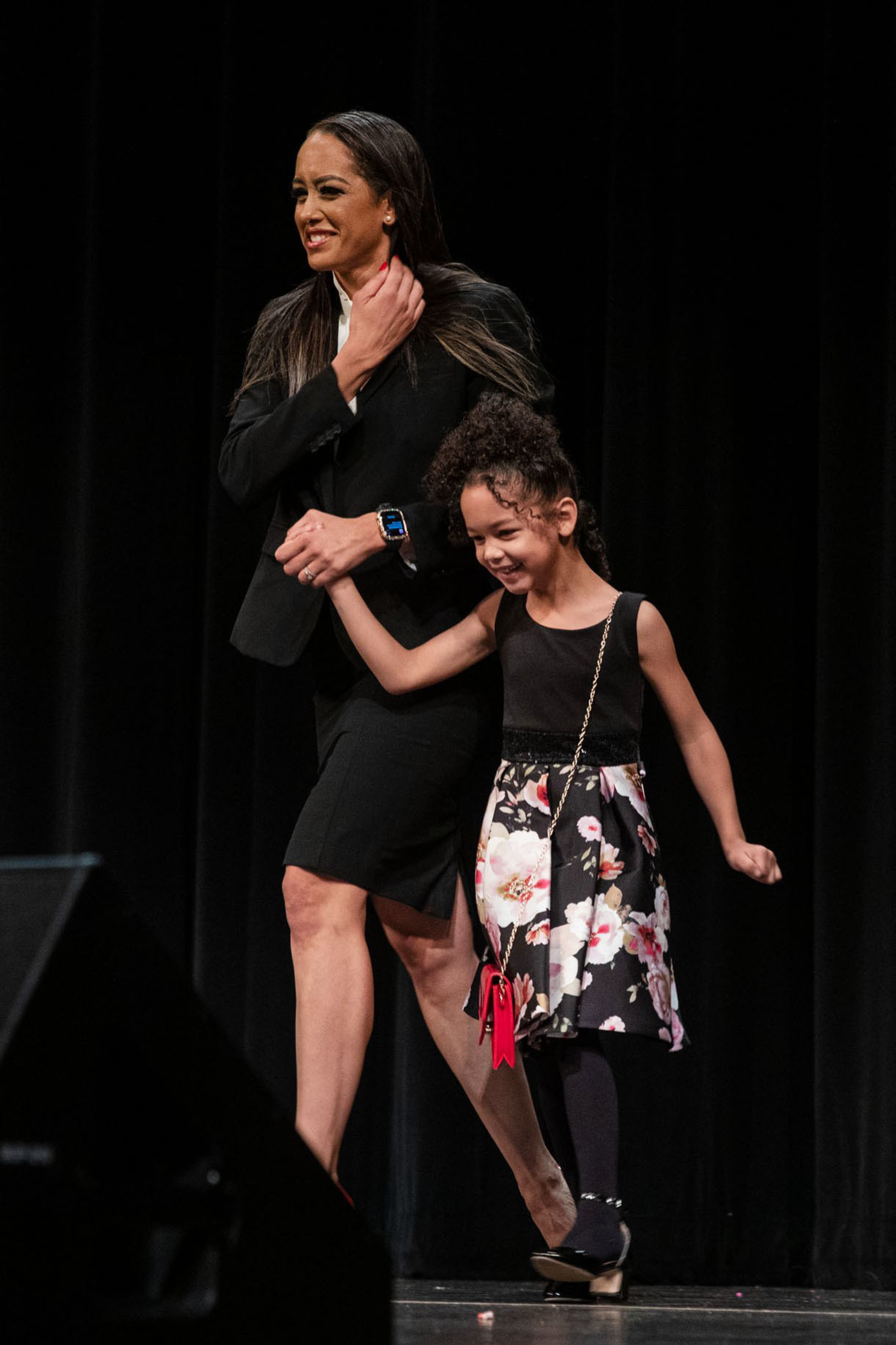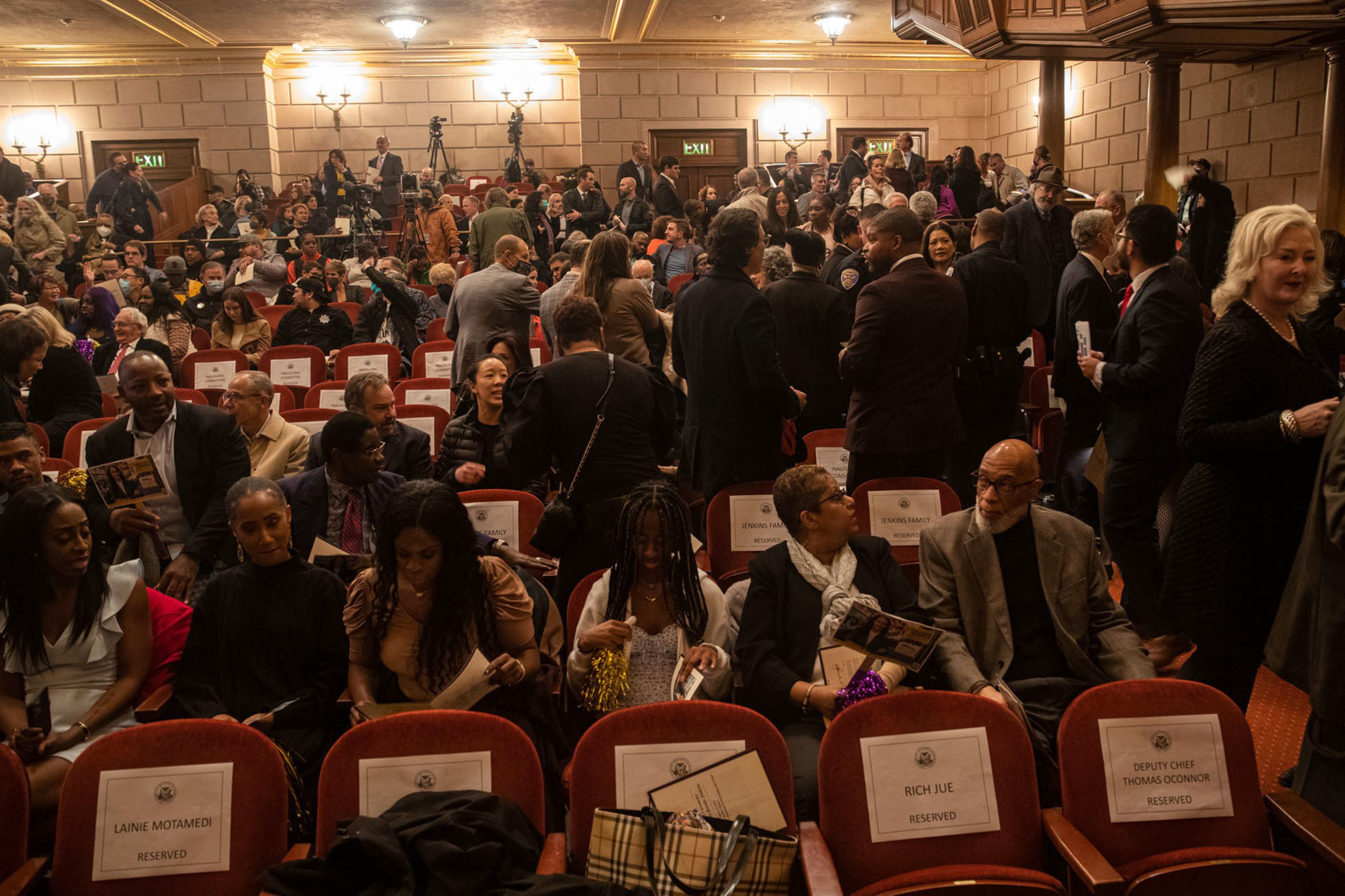San Francisco District Attorney Brooke Jenkins took the oath of office before an audience of supporters and city officials Wednesday, two months after winning election to the position she was appointed to after working for the successful recall of her former boss.
After Sen. Alex Padilla swore her in, Jenkins’ speech was full of praise and thanks to her supporters and allies as well as thinly veiled attacks on her predecessor, Chesa Boudin. Jenkins blamed his progressive policies for deteriorating conditions on city streets.
“A year ago, I could not have imagined standing before you as the San Francisco District Attorney,” Jenkins said. “It was a confluence of events that led not just me, but us, to this point. Unfortunately, the severe downward spiral of public safety in San Francisco and where it collided with ideology led our city to call for change.”

The speech, which listed her self-proclaimed accomplishments, also balanced her tough stances on crime and criminality and her support for reforms. It ticked off a list of her accomplishments in her short time, even if many were slight tweaks to her predecessor’s policy.
Additionally, the speech conveyed the all-too-common story of the struggles of a Black and Latina woman in America. It also touched on the death of her son, Justice.
“I had no idea when we chose his name, that Justice would become something that I would fight for daily as a prosecutor and now as your DA,” Jenkins said. “I truly believe that through Justice’s death, I was called to do this work—to fight for those who need justice in the criminal justice system.”

Rise to Power
Mayor London Breed appointed Jenkins in July 2021, after the successful recall of Jenkins’ former boss, Chesa Boudin. Since that time, she has been at work trying to convince a shaken city that her office will crack down on crime.
After her November election to serve out the rest of what would have been Boudin’s term, Jenkins promised to balance reforms with a tougher approach to crime. But even before that, she had been spending time in the community, reminding citizens and media alike that she plans to make the city safer.
Police soon began making more street-level arrests, and her office began handling many of those cases with a harder approach than before. Specifically, prosecutors in some cases said they might charge drug dealers with murder if someone they sold drugs to dies of an overdose. No such charges have yet to be filed.
Jenkins framed key policy decisions as departures from those of her predecessor, even when they were fairly similar to Boudin’s approach. For instance, while the District Attorney’s Office now allows prosecutors to charge juveniles as adults, and to reinstate bail in some cases, neither tactic has yet been used. She also said she would crack down on public drug users, but when a prosecutor started charging them instead of sending them to treatment, Jenkins reversed the move.
In other areas, her leadership has been a change. Her office revoked lenient plea deals offered under Boudin, and the DA’s relationship with the SFPD seems to have been repaired after it fell into infighting over how the two departments cooperate in police misconduct cases.

In other areas, at least for now, Jenkins has seemingly kept Boudin’s reforms in place, such as the Innocence Commission, the body that reviews cases in which defendants were not given fair trials or have new evidence that could exonerate them.
When it comes to prosecuting police in use-of-force cases, her office has yet to take any new action in a group of cases that are still in limbo. Jenkins did, however, replace much of the unit that investigated those cases. Former unit members whom she fired have expressed doubt that under her leadership it would be anything but window-dressing for reform.
Despite public statements about being tough on lawlessness, crime rates in San Francisco have seen little change from Boudin’s time in office. With a few exceptions, they have not reached pre-pandemic levels.
But Jenkins’ first months in office have also been marked by more than policy changes and rhetoric. Her opponents have attacked her for what they say are loose ethical standards before she took office. Soon after her appointment, she disclosed that she earned more than $170,000 from a group of nonprofits tied to the recall, in contrast to her initial claim she was an unpaid volunteer.
